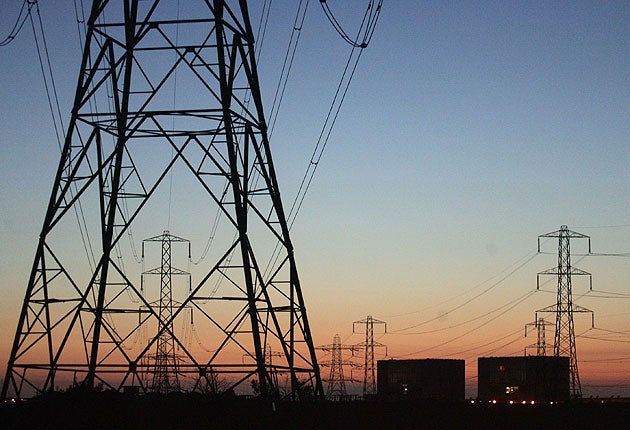The Analyst: All roads lead to infrastructure

Infrastructure is everywhere, from electricity pylons, gas pipes and water mains to toll roads, railway lines and airports. These things are used all day, every day across the developed world and are in constant need of maintenance and upgrades. Somewhere along the line a profit is being made, which is why investing in infrastructure-related industries has great potential for long term capital growth. The essential nature of infrastructure also means the best companies in the area will have superb cash flow, meaning a relatively high level of income for their investors through dividends.
I like infrastructure assets that have to be used. Take an airport as an example. If you are going on holiday you can choose which country to visit and which airline to use, while the airline itself can choose who supplies their aircraft. However, you often have little choice over which airport to use; airport operators effectively have a monopoly position. Monopoly infrastructure operators can often set both the prices they charge and, crucially, can increase them annually at least in line with inflation.
Well established infrastructure firms have generally weathered the financial crisis well. I put this down to the general stability of cash flow that just isn't there with many other businesses. Having said this, infrastructure is by no means the perfect investment, not least because many infrastructure companies have debt that will need to be refinanced in the coming years. With the credit markets still volatile, even stable companies with good cash flow may end up paying a high cost for debt. There are many who suggest that emerging markets are where the best infrastructure investments can be found. It is certainly true that these countries are developing fast and growth potential is greater if you can invest at an earlier stage. However, this is inextricably linked to other key themes of emerging markets, such as urbanisation, and doesn't add much that is really unique.
I look at infrastructure differently, seeing it as something that can provide fairly stable growth and stable income, rather than a racy high-risk investment. That's why I prefer infrastructure funds that invest in the developed world.
It is interesting to note that many of the recent stimulus packages from governments around the world have focused on infrastructure. It's about time, because in the UK and US in particular much of the current infrastructure is in urgent need of replacement. Repairing rutted roads and crumbling bridges helps in the short term by boosting spending and creating jobs, while making the economy more efficient in the long run.
There aren't many specialist infrastructure funds available, but my favourite is First State Global Listed Infrastructure, managed by Peter Meany. Similar to other First State funds, stability of cash flow and the ability to pay dividends is very important Mr Meany expects this year's dividends from the portfolio to be about 5 per cent higher than last year.
Keeping it simple is one of Mr Meany's key criteria at the present: companies with complex balance sheets that are difficult to understand should probably be avoided. This fund focuses mainly in the developed world and around 80 per cent of the port-folio is currently invested in Europe and the US. Mr Meany believes that the fund is well positioned in the current uncertain climate and that many of his favourite investments are at long-term low valuations.
I think infrastructure investments can form a long-term core holding., Indeed infrastructure firms such as water or electricity companies have been a mainstay of equity income funds for many years. Rising populations will put more strain on existing infrastructure assets, and governments the world over recognise the need to invest heavily in this area. Overall I think this provides a good basis for long-term growth combined with a reasonably high level of income, although like any investment in shares investors must be prepared for the value of their capital to fluctuate.
Ben Yearsley is investment manager at Hargreaves Lansdown, the asset manager, financial adviser and stockbroker. For more information about the funds included in this column, visit www.h-l.co.uk/independent
Subscribe to Independent Premium to bookmark this article
Want to bookmark your favourite articles and stories to read or reference later? Start your Independent Premium subscription today.

Join our commenting forum
Join thought-provoking conversations, follow other Independent readers and see their replies